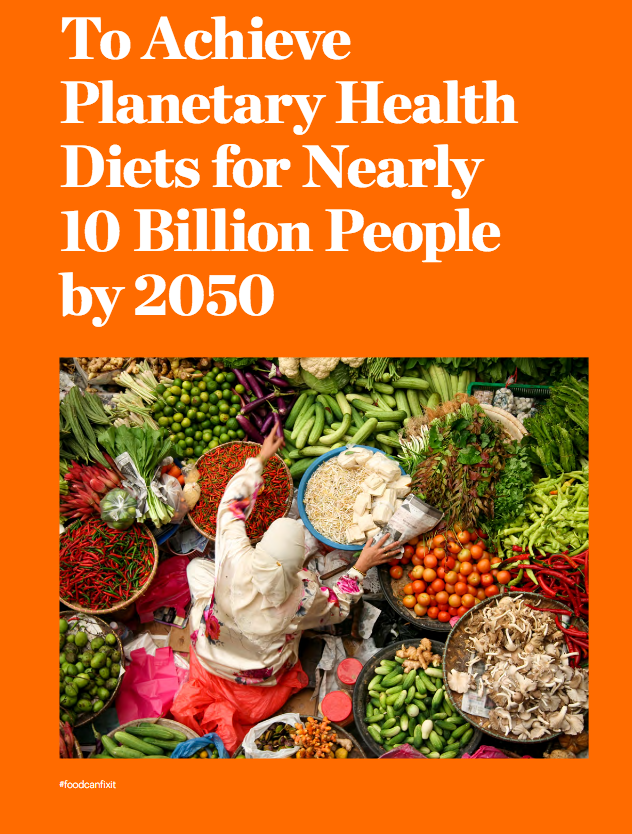Courtesy of Nina Firsova / Dreamstime.com
Published in January by a committee of 37 independent scientists headed by Harvard’s Walter Willet, it lays out a blueprint for an optimal plant-based, largely meat-free diet, and for food production systems that would ensure sustainable fulfillment of this diet on the widest possible scale. The project is a joint effort between Lancet and the EAT Forum Forum, and was independently funded by the Wellcome Trust and the Stordalen foundation.
EAT is an Oslo-based non-profit focused on health, nutrition, and environmental issues. It was founded by Gunhild Stordalen, MD, PhD, a Norwegian pathologist/orthopedic surgeon and environmental health activist, and her husband Petter Stordalen, one of Norway’s most prominent real estate developers, investors, and environmentalists.
Participants on the commission received no financial compensation from EAT or Wellcome Trust.
Though the report is strictly a guidance document, the authors note that its scientific targets for healthy diets and food system sustainability “are intertwined with all UN Sustainable Development Goals.”
Here are some key points and conclusions:
- Globally, over 820 million people go hungry every day, and 150 million children suffer from long-term chronic hunger that impairs growth and development. 50 million children are acutely hungry.

EAT-Lancet Commission’s "Food in the Anthropocene" report
- Simultaneously, prevalence of overweight and obesity is surging worldwide; over 2 billion adults are overweight and obese.
- Unhealthy and unsustainably produced food is a global risk. Combined with projected population growth to about 10 billion by mid-century, status quo diet trends will stoke the prevalence of chronic disease, while accelerating carbon emissions, nitrogen and phosphorus pollution, biodiversity loss, and water and land exhaustion.
- Prevention of major worldwide health and environmental crises requires rapid and widespread adoption of healthy and sustainable plant-based diets that largely exclude red meat and other animal products.
- This must include a greater than 50% reduction in global consumption of red meat and sugar, and a greater than 100% increase in consumption of nuts, fruits, vegetables, and legumes. This is especially true in industrialized countries where meat and sugar intake are highest. The specific changes needed differ greatly by region.
- Future food production should use no additional land, and should safeguard existing biodiversity, reduce consumptive water use, cut nitrogen and phosphorus pollution, produce zero carbon dioxide emissions, and cause no further increase in methane and nitrous oxide emissions.
- This agricultural revolution will require: a 75% or more reduction of yield gaps; global redistribution of nitrogen and phosphorus fertilizer use; recycling of phosphorus; radical improvements in efficiency of fertilizer and water use; rapid deployment of agricultural strategies to cut greenhouse-gas emissions; adoption of land management practices that shift agriculture from carbon emission to carbon sequestration.
- Agricultural priorities need to be shifted from production of high quantities of monocropped, unhealthy food to production of healthy, nutritious food via biodiversity-enhancing agricultural methods.
- Long-term sustainability also depends on major reductions in food waste. The goal should be to reduce current food waste by half.
- No single actor or technological breakthrough is likely to catalyze the needed changes.
- The goals of universal dietary health and food sustainability are within reach, but will require adoption of objective scientific targets and unprecedented global collaboration by governments, businesses, organizations, institutions, and individuals. “A full range of policy levers, from soft to hard, will be needed.”
- Long term human food security requires strong, coordinated international governance of land and oceans, including: a zero-expansion policy of new agricultural land into natural ecosystems; management policies aimed at restoring and re-foresting degraded land; and adoption of a “Half Earth” strategy that would set aside roughly half of the planet’s landmass for biodiversity conservation.
“The dominant diets that the world has been producing and eating for the past 50 years are no longer nutritionally optimal, are a major contributor to climate change, and are accelerating erosion of natural biodiversity,” write Lancet editors Tamara Lucas and Richard Horton in their commentary accompanying Food in the Anthropocene.
“For the first time in 200,000 years of human history, we are severely out of synchronisation with the planet and nature. This crisis is accelerating, stretching Earth to its limits, and threatening human and other species’ sustained existence. The publication now of Food in the Anthropocene…could be neither more timely nor more urgent.”
END







